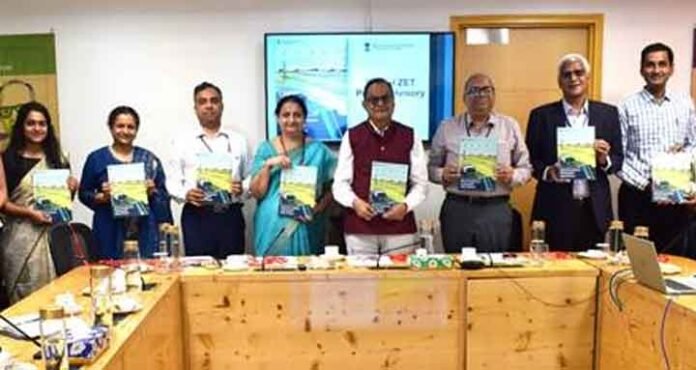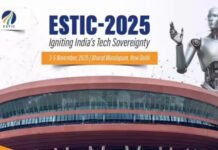On August 21, 2024, at the Vigyan Bhawan Annexe in New Delhi, Prof. Ajay Kumar Sood, Principal Scientific Adviser (PSA) to the Government of India, introduced the groundbreaking “Bharat Zero Emission Trucking (ZET) Policy Advisory” document. The launch event was attended by notable figures including Dr. Parvinder Maini, Scientific Secretary at the Office of PSA; Sh. Hanif Qureshi, Additional Secretary (Auto), Ministry of Heavy Industries; Sh. Sudhendu Sinha, Adviser for Infrastructure Connectivity & E-Mobility at NITI Aayog; and other distinguished guests from IIT Madras and the World Resources Institute (WRI).
Key Highlights of the Advisory Document
Prof. Sood, in his opening remarks, underscored the critical role of Zero Emission Trucks (ZET) in advancing decarbonization and enhancing energy security. He emphasized that the effective integration of ZETs into India’s transport ecosystem requires both technical expertise and systematic policy interventions to build a robust techno-socio-economic framework.
Context and Overview
Prof. Karthick Athmanathan, PSA Fellow and Professor of Practice at IIT Madras, provided an insightful context for the Bharat ZET Policy Advisory document. Ms. Sharvari Patki from WRI presented a concise overview of the document, detailing the approach and methodology used to determine the policy interventions.
Need for Electrification and Future Goals
Sh. Hanif Qureshi and Sh. Sudhendu Sinha further elaborated on the necessity of truck electrification. They discussed the strategic path to achieving a full transition to ZETs, targeting a 100% ZET sales penetration by 2050. This goal is crucial for meeting India’s ambitious Net Zero 2070 commitment.
Comprehensive Policy Interventions
The Bharat ZET Policy Advisory outlines 30 comprehensive policy interventions aimed at accelerating the adoption of ZETs in India. These interventions are organized into five primary categories:
- Incentives: Encouraging adoption through financial and non-financial incentives.
- Regulations: Establishing rules and standards for ZET implementation.
- Infrastructure: Developing necessary charging and support infrastructure.
- Business and Financing: Facilitating investment and business models for ZET integration.
- Stakeholder-Centric Initiatives: Engaging relevant stakeholders and promoting collaborative efforts.
Each intervention specifies a nodal agency for implementation, identifies key stakeholders, and evaluates the expected impact and methodology of the policy formulation. These recommendations will undergo further refinement through extensive consultations and detailed analyses by relevant ministries and institutions.
Development and Steering of the Advisory Document
The creation of the Bharat ZET Policy Advisory was directed by a Policy Advisory Panel (PAP) established by the Office of PSA. The PAP, chaired by Dr. Preeti Banzal and vice-chaired by Prof. Karthick Athmanathan, included experts from various sectors, such as automotive research, new technologies, and clean air initiatives.
A Project Management Unit at the Centre of Excellence for Zero Emission Trucking (CoEZET) at IIT Madras was responsible for drafting the advisory document under the guidance of the PAP. The panel comprised prominent figures from industry and academia, including Dr. Reji Mathai of the Automotive Research Association of India, Sh. S.A. Sundaresan of Ashok Leyland Ltd., and Sh. Sushant Naik of Tata Motors Ltd., among others.
Access the Full Advisory Document
For detailed information, the full Bharat ZET Policy Advisory document is available online at the following link: Bharat ZET Policy Advisory.
This landmark document marks a significant step towards a sustainable future for India’s trucking industry, aligning with global environmental goals and advancing the country’s transition to zero-emission transportation.
















